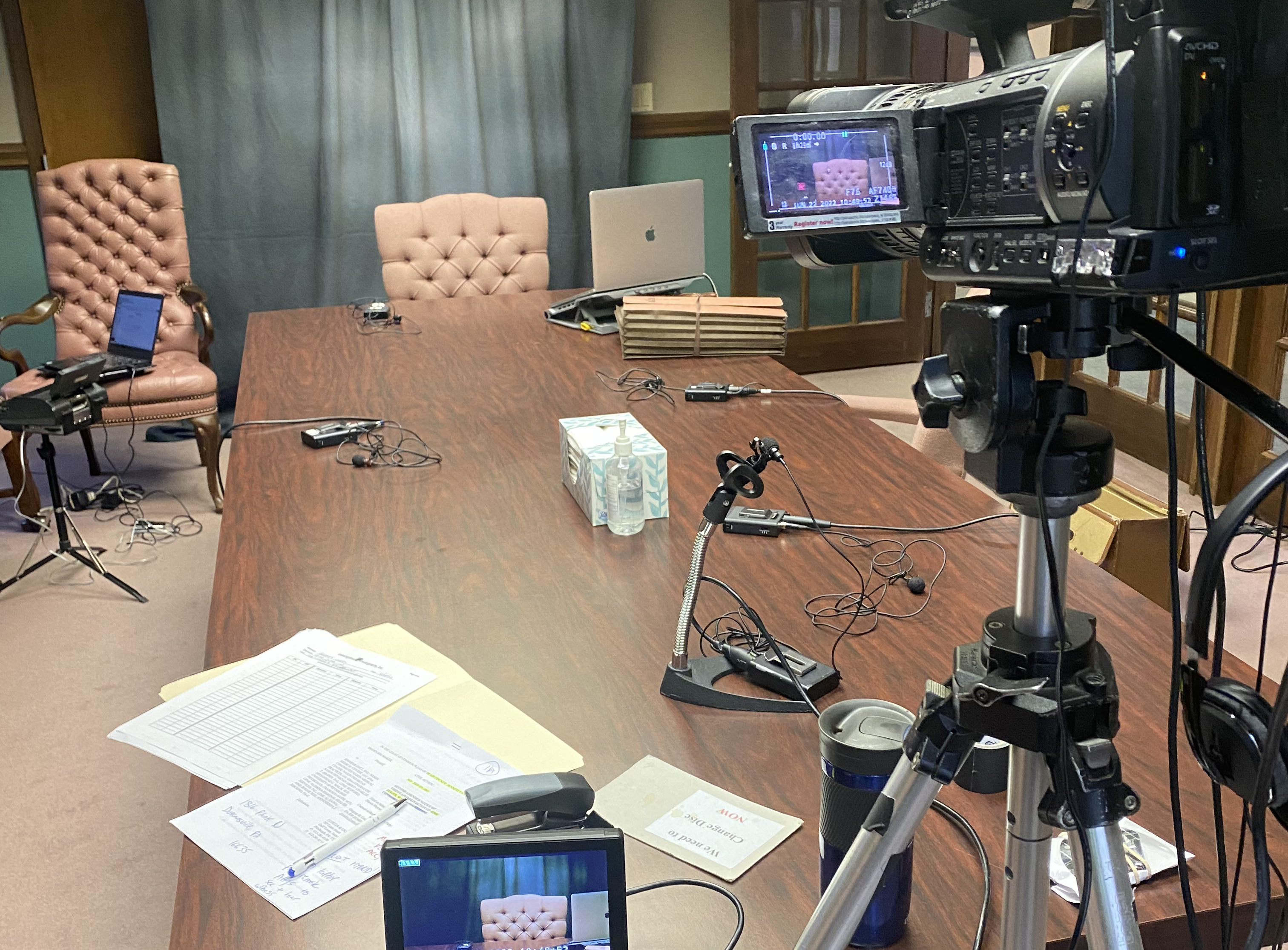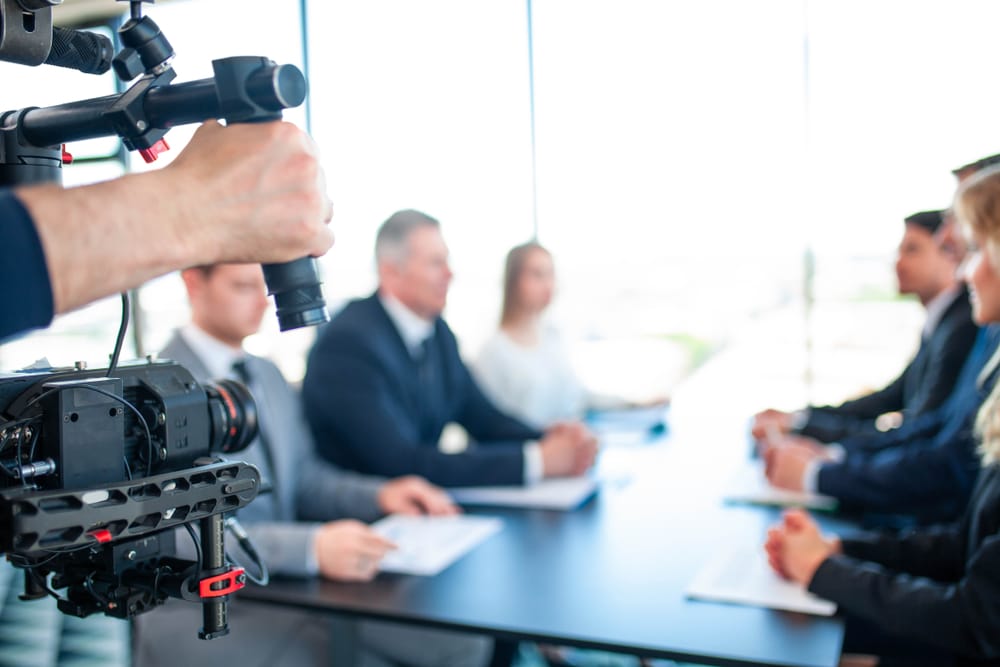A side-by-side comparison of traditional vs legal video depositions
The Importance of Lawful Video Depositions in Modern Legal Providers: What You Must Know
Legal video depositions have become vital in today's legal landscape. They give a multidimensional view of witness statements that conventional records just can not match. By capturing both verbal and non-verbal interaction, these depositions enhance the general understanding of a witness's credibility. The performance of video depositions hinges on various aspects, including compliance with legal standards and ideal techniques. Discovering these elements exposes their real relevance in modern lawful solutions
What Are Lawful Video Depositions?
Lawful video clip depositions act as an important tool in the lawsuits process. They involve recording witness testaments in a video format, catching both spoken and non-verbal interaction. This method permits lawyers to document the temperament, expressions, and reactions of witnesses, supplying a richer context for the testament. Generally carried out in a controlled setting, these depositions are led by lawyers who ask concerns while a court press reporter documents the discussion. The resulting video clip can be vital for trial prep work, as it enables lawyers to analyze the reliability of witnesses and fine-tune their methods. Furthermore, legal video clip depositions can be utilized in different lawful contexts, varying from civil disagreements to criminal situations. The aesthetic and acoustic elements of video clip depositions boost the discussion of proof, making it a necessary element in the contemporary legal landscape. In general, they contribute considerably to the efficiency and efficiency of lawful process.

Advantages of Video Depositions Over Conventional Approaches
Video depositions provide many advantages contrasted to standard techniques of taking witness testimonies. One substantial advantage is the capability to record both audio and aesthetic components, giving a much more extensive record of the witness's statements. This dual format boosts clarity and enables legal specialists to reference details nuances throughout test preparation. Additionally, video clip depositions help with remote engagement, making it simpler for witnesses who might be unavailable for in-person looks as a result of geographical restrictions or wellness issues.Moreover, video clip depositions can quicken the overall deposition procedure, minimizing the time and prices connected with travel and logistics. They also enhance ease of access, as tape-recorded depositions can be quickly shared among lawful teams and referenced at any time. This ease contributes to much better instance monitoring and preparation. In general, video depositions stand for a modern, effective strategy to collecting witness testimonies, straightening with the developing needs of the lawful career.
The Function of Body Language and Tone in Testimonies

In legal video clip depositions, body language and tone play essential duties in sharing a witness's integrity and reliability. Nonverbal hints can offer insights right into a witness's emotional state, influencing just how their testament is perceived. Recognizing the influence of these elements is essential for attorneys and jurors alike when reviewing the integrity of a statement.
Nonverbal Communication Insights
While verbal communication is commonly stressed in legal testaments, nonverbal signs such as body movement and tone play a vital function in conveying credibility and emotion. Observers of depositions might note that a witness's stance, motions, and faces can significantly affect understandings of reliability. As an example, constant eye contact might signify confidence, while avoiding stare might recommend dishonesty or discomfort. The tone of voice-- its rate, pitch, and volume-- can impart sensations of genuineness or uncertainty. Lawyers must be attuned to these nonverbal signals, as they typically offer vital context that complements talked words. Comprehending these subtleties can enhance the efficiency of depositions and affect the result of legal procedures.
Emotional Tone Effect
The emotional tone conveyed throughout legal testimonies significantly impacts how a witness is perceived. Body language, vocal inflections, and facial expressions play vital functions fit the narrative of a testimony. A witness exhibiting self-confidence with consistent eye call and a calm tone can infuse a sense of integrity and engagement. Alternatively, signs of stress and anxiety, such as fidgeting or a shaky voice, might bring about hesitation regarding their account. The nuances of psychological expression can influence the analysis of realities, making it vital for attorneys to acknowledge these signs. In video clip depositions, the aesthetic and acoustic elements integrate, emphasizing the relevance of psychological tone in conveying sincerity and reliability within the lawful process.
Integrity and Reliability
A vital consider developing reputation and trustworthiness during testimonies depends on the witness's body language and tone of voice. Observers typically depend on non-verbal signs-- such as eye call, stance, and motions-- to examine a witness's genuineness. A witness that maintains eye contact and displays open body language might be regarded as even more straightforward and trusted than one that prevents eye get in touch with or appears shut off. In addition, intonation plays a vital role; a learn the facts here now constant, tranquil tone can reinforce the trustworthiness of the testament, while variations in pitch or volume might elevate doubts. Ultimately, the combination of body movement and vocal tone substantially affects just how a witness's statements are obtained and translated in a lawful context.
Best Practices for Performing Video Depositions
Performing video depositions needs careful planning and implementation to ensure a clear and effective discussion of testimony. It is important to pick a peaceful, well-lit place to decrease distractions and protected optimal video clip top quality. The tools ought to be evaluated in development, consisting of electronic cameras, microphones, and lights, to stay clear of technological problems during the deposition.Next, events included have to examine the layout and procedures in advance, making certain that everybody comprehends their functions. The deponent must be informed on the procedure, including just how to respond plainly and concisely.Additionally, keeping a professional demeanor throughout the session is vital. This consists of avoiding speaking over each other and validating that all questions are guided suitably. Finally, it is vital to tape the deposition in a layout that permits easy playback and evaluation, protecting the honesty of the testament for future use.
Legal Considerations and Compliance Issues
Exactly how do legal considerations and compliance problems affect the efficiency of video clip depositions? Lawyers should navigate a complex landscape of policies, making sure that video depositions comply with jurisdictional guidelines and standards. Compliance with laws concerning privacy, consent, and recording approaches is essential. Obtaining specific authorization from all events included is required to avoid lawful repercussions.Additionally, the admissibility of video evidence in court can pivot on compliance with procedural needs. Guaranteeing that the devices used fulfills technological standards is additionally crucial, as bad quality can weaken the deposition's reliability.Moreover, attorneys have to understand any certain state legislations that control video depositions, as these can vary substantially. Failure to resolve these factors to consider can not only threaten the stability of the deposition yet likewise impact the general case technique, inevitably impacting the customer's legal end results.
Just How Video Depositions Effect Jury Understanding
While video clip depositions can act as effective tools in legal process, their influence on court perception is substantial. The visual and auditory aspects of video clip recordings supply jurors with a much more extensive understanding of witness attitude, trustworthiness, and psychological reactions. This multimedia technique can boost the jurors' ability to examine the integrity of testimony compared to typical text-based transcripts.Moreover, video depositions enable jurors to observe body movement, tone of voice, and faces, all of which can affect their analysis of the witness's declarations. The presence of a witness on display can humanize them, cultivating compassion and link, which may sway jurors' viewpoints. Alternatively, a witness who appears undependable or incredibly elusive on video clip may result in unfavorable understandings that Recommended Site affect a court's choice. Inevitably, the vibrant nature of video clip depositions plays an essential role fit how jurors translate proof and reach their decisions.
The Future of Video Clip Depositions in Legal Method
As improvements in modern technology remain to improve the lawful landscape, the future of video clip depositions is poised for considerable development. Advancements such as man-made knowledge, online truth, and improved video conferencing tools are anticipated to simplify the deposition procedure and enhance availability. Lawful professionals may use AI-driven analytics to evaluate witness credibility and situation strength more effectively.Moreover, the integration of virtual fact could allow courts to experience immersive simulations of depositions, supplying deeper context and understanding. Furthermore, the pattern towards remote depositions is most likely to persist, providing greater flexibility for attorneys and clients alike.As remote job ends up being progressively stabilized, video depositions will likely become common practice, decreasing prices and time constraints connected with standard techniques. In general, these technical advancements assure to improve the efficiency, performance, and access of video clip depositions in lawful practice, ultimately changing how attorneys get ready for trial.
Often Asked Inquiries
Just How Much Do Lawful Video Depositions Typically Price?

Can Video Depositions Be Used in Any Type Of Kind of Case?
Video clip depositions can be made use of in different kinds of cases, including civil, criminal, and family members law. Their adaptability enables attorneys to existing witness testaments properly, adapting to the particular requirements of various lawful scenarios.
What Devices Is Needed for a Video Clip Deposition?
To carry out a video deposition, crucial equipment includes a top notch camera, microphone, lighting, and a reliable recording tool. Additionally, a computer with editing and enhancing software might be needed for post-production and formatting the last video clip.
For how long Does a Normal Video Clip Deposition Last?
A normal video deposition lasts in between 2 to 4 hours, relying on the intricacy of the instance and the variety of inquiries presented. Extended sessions might happen, however breaks are generally integrated for individual comfort.

Are Video Clip Depositions Admissible in Court?
Video clip depositions are normally acceptable in court, supplied they abide by legal standards and rules of evidence. Their use enhances quality and maintains witness testament, helping in the judicial process during hearings and tests. Lawful video depositions have come to be necessary in today's legal landscape. Furthermore, legal video clip depositions can be used in different legal contexts, ranging from civil conflicts to criminal cases. In addition, video clip depositions promote remote involvement, making it less complicated for witnesses that may be unavailable for in-person looks due to geographical restrictions or health and wellness issues.Moreover, video depositions can quicken the general deposition process, lowering the time and expenses associated with traveling and logistics. Making sure that the equipment made use of satisfies technical criteria is also vital, as bad quality can threaten the deposition's reliability.Moreover, attorneys have to be conscious of any kind of certain state laws that control video depositions, as these can differ greatly. In addition, the trend towards remote depositions is likely to continue, offering higher flexibility for clients and lawyers alike.As remote work ends up being increasingly normalized, video clip depositions pop over to this site will likely become typical method, lowering costs and time restrictions associated with conventional approaches.